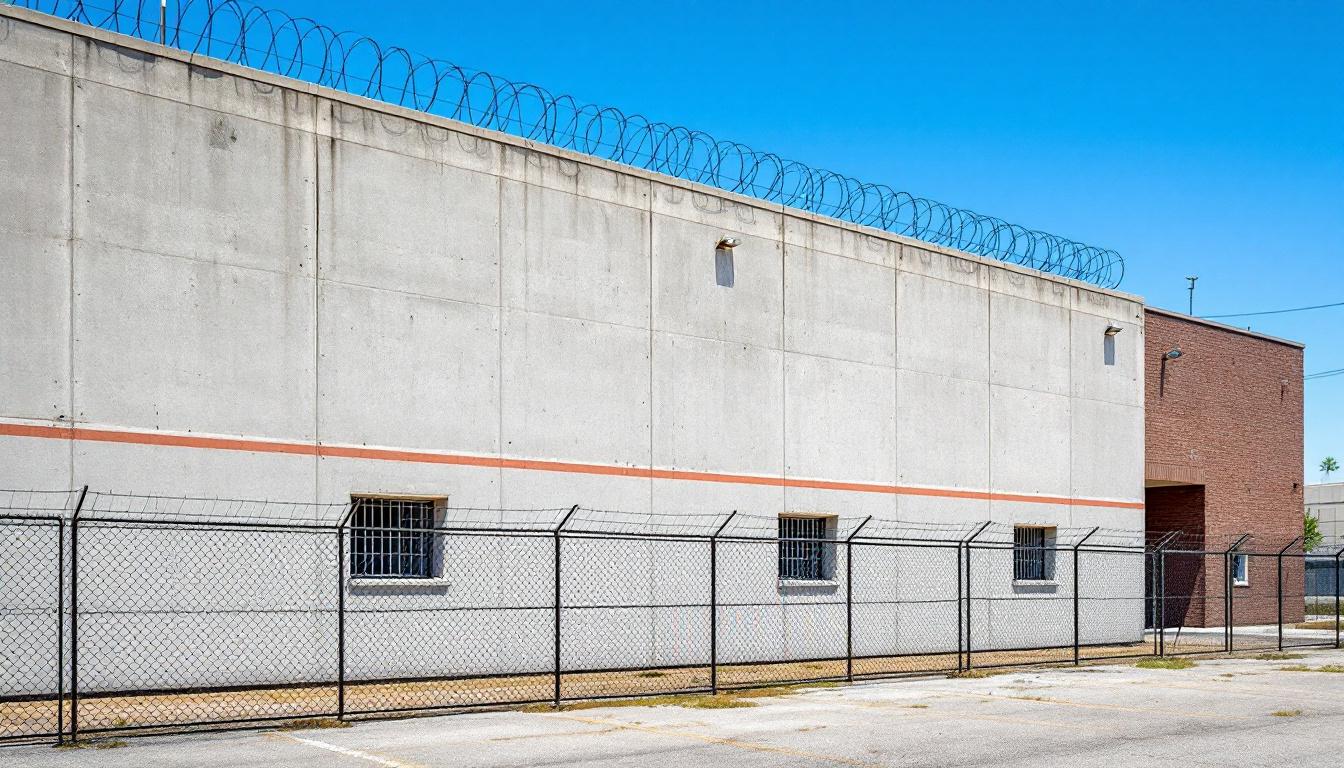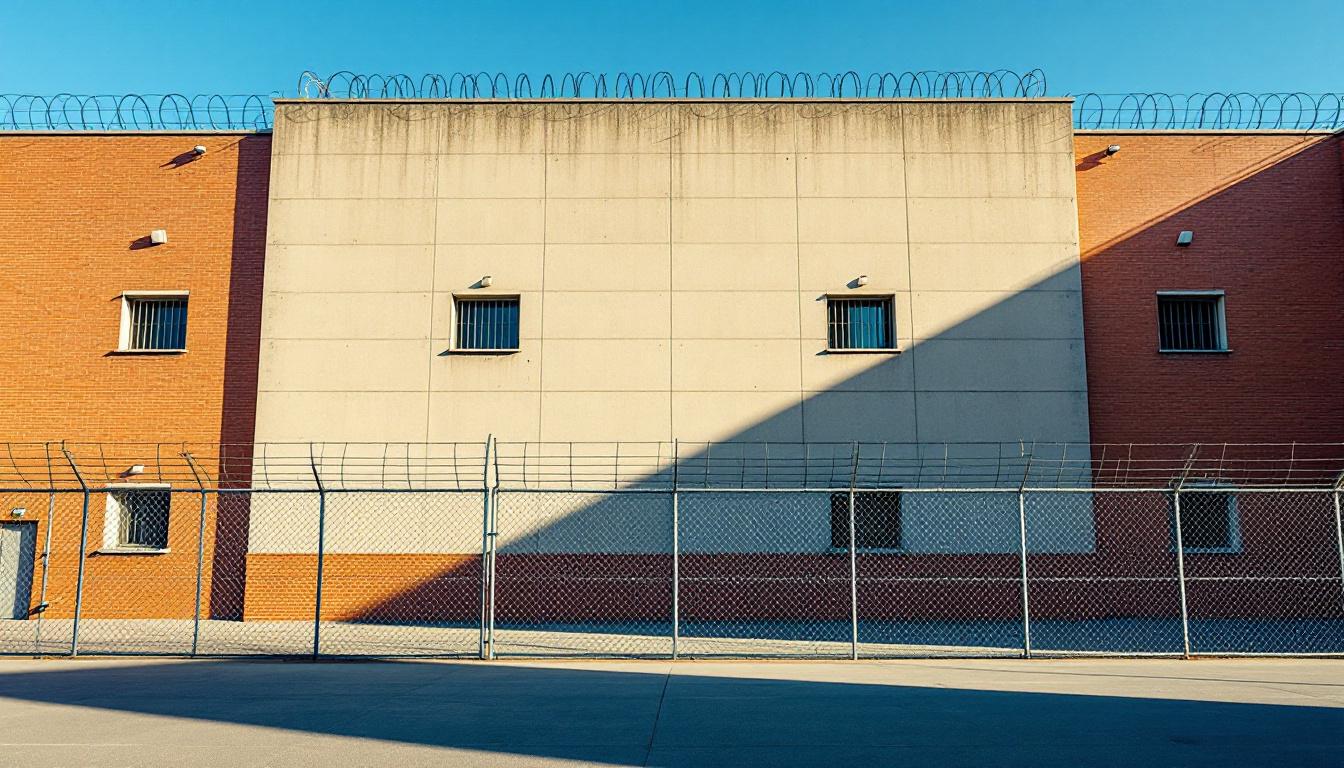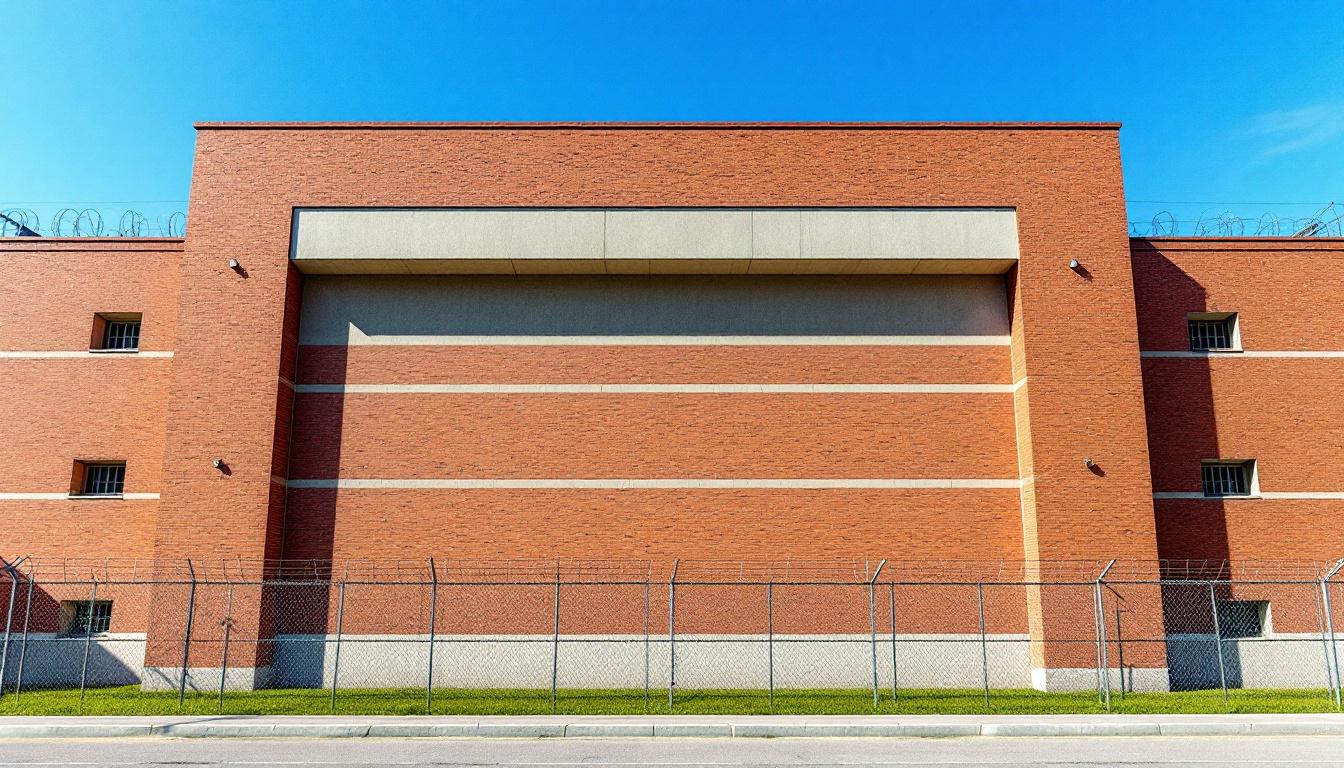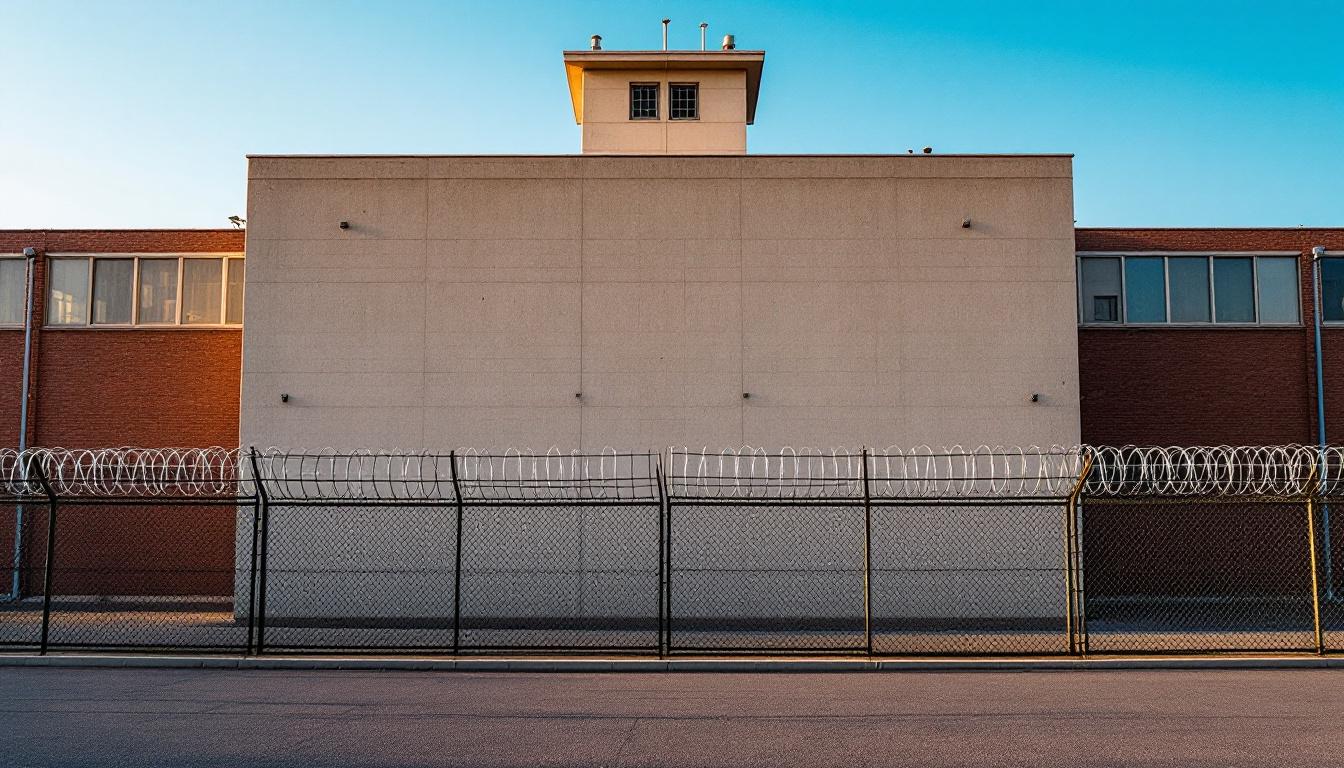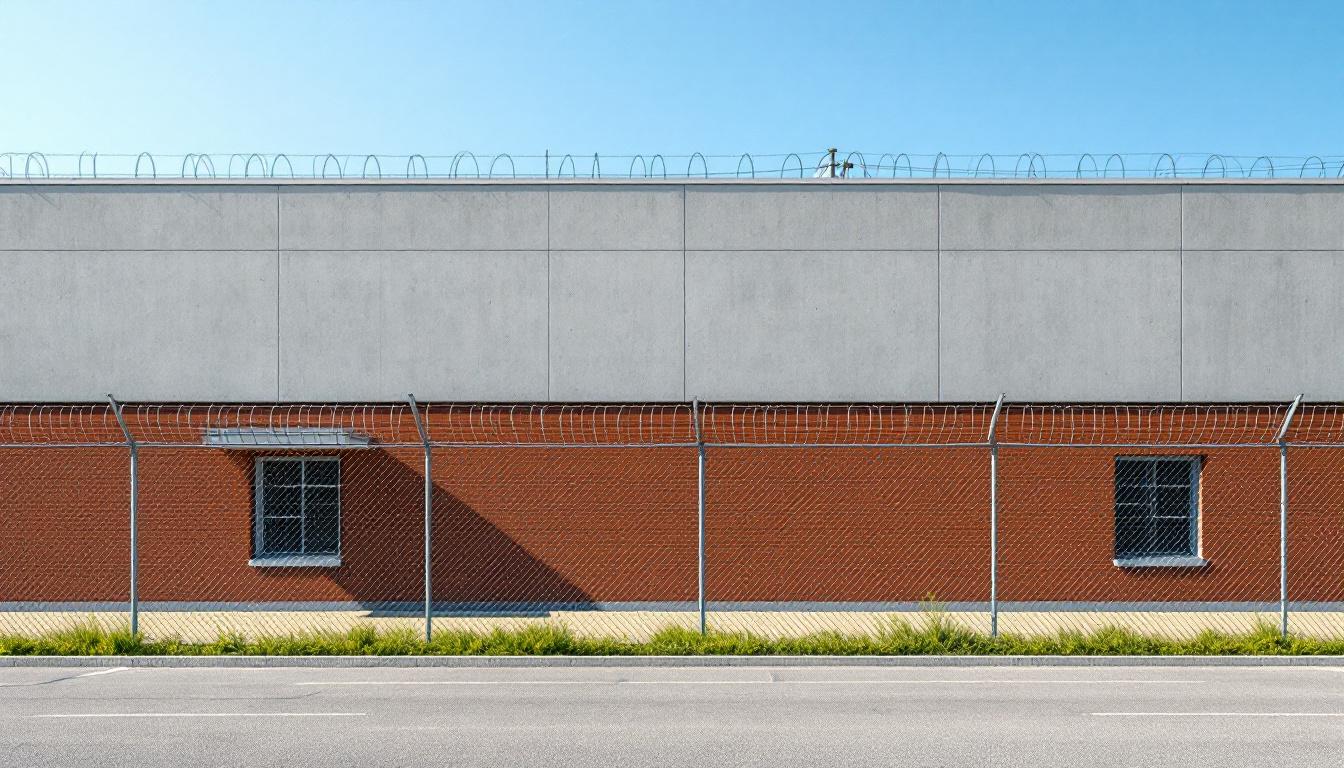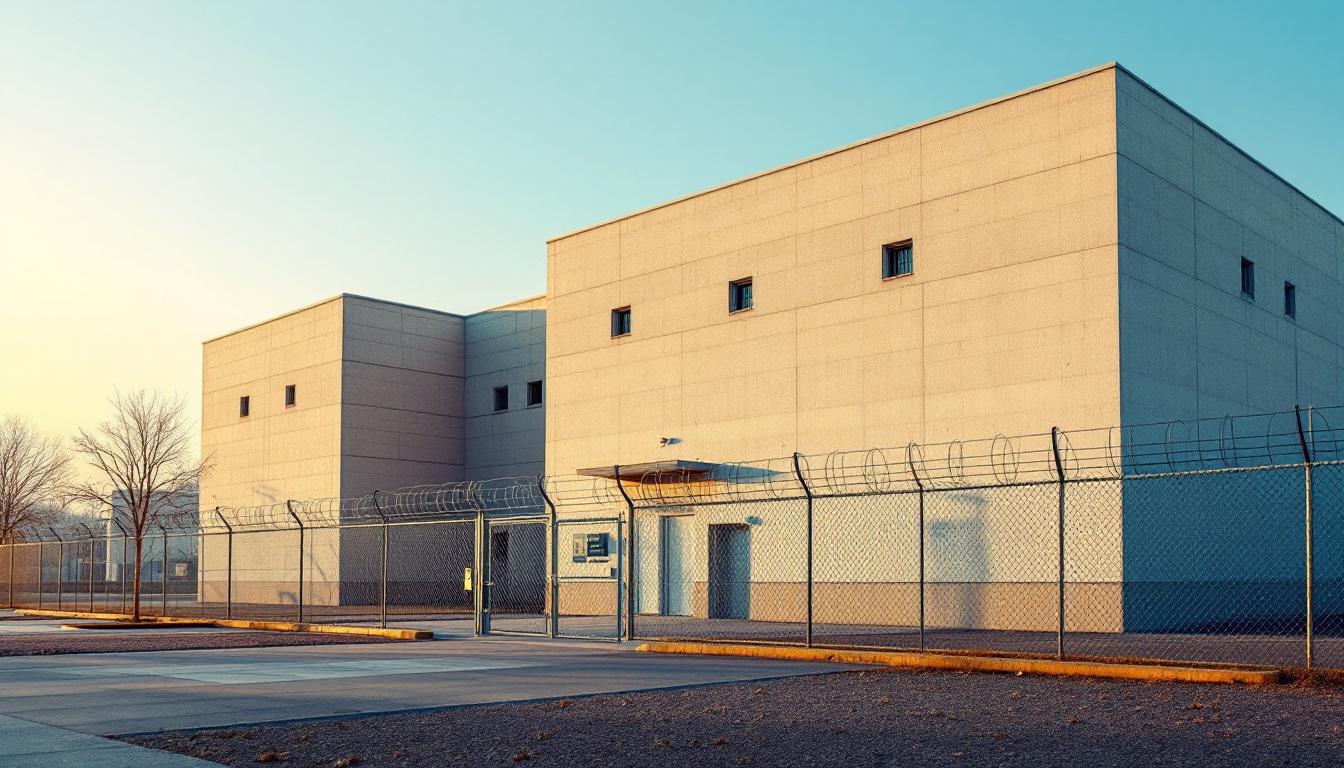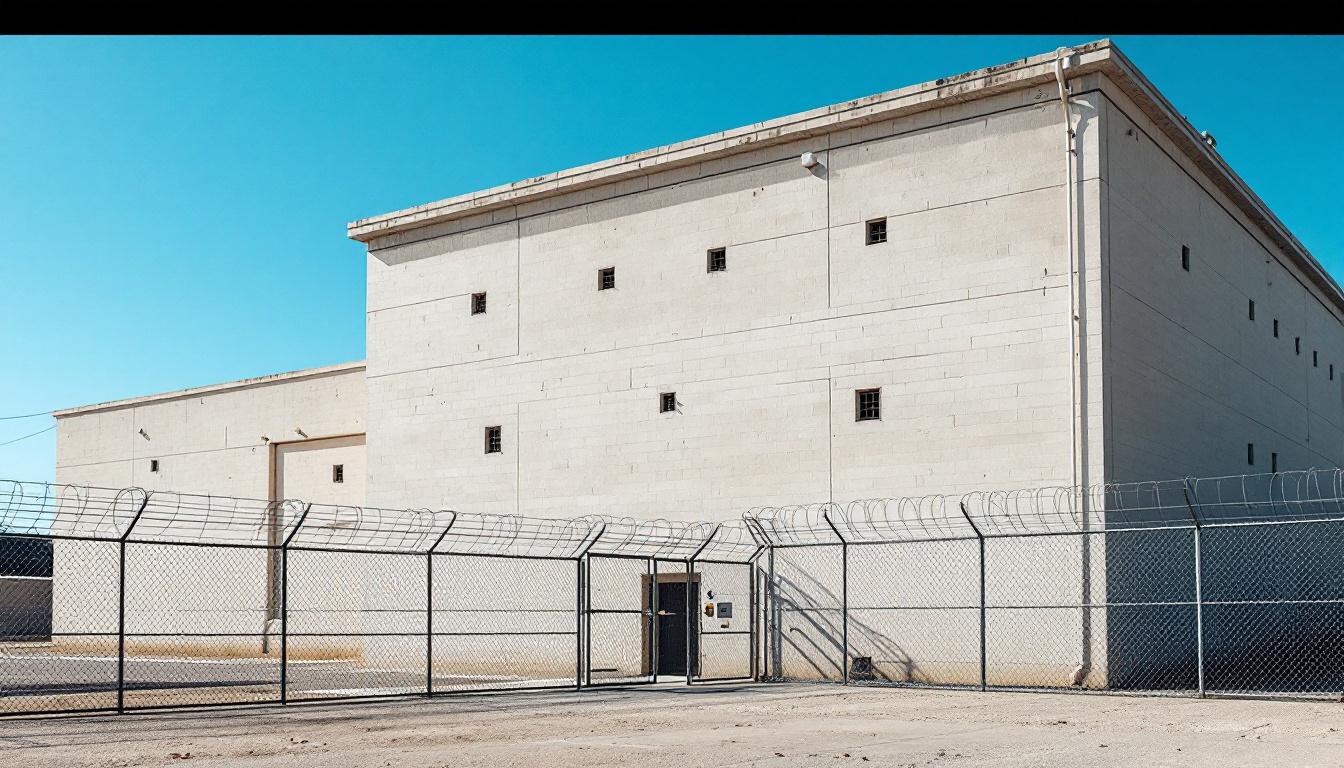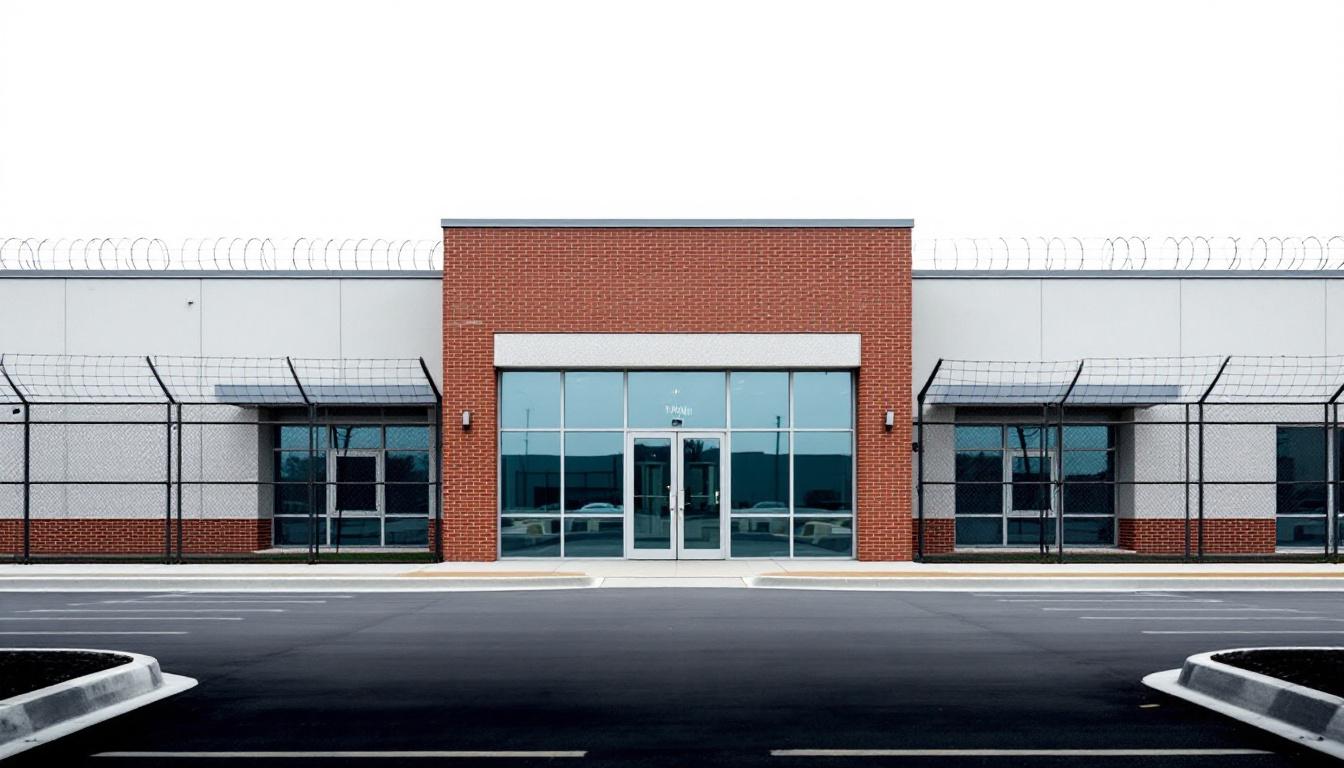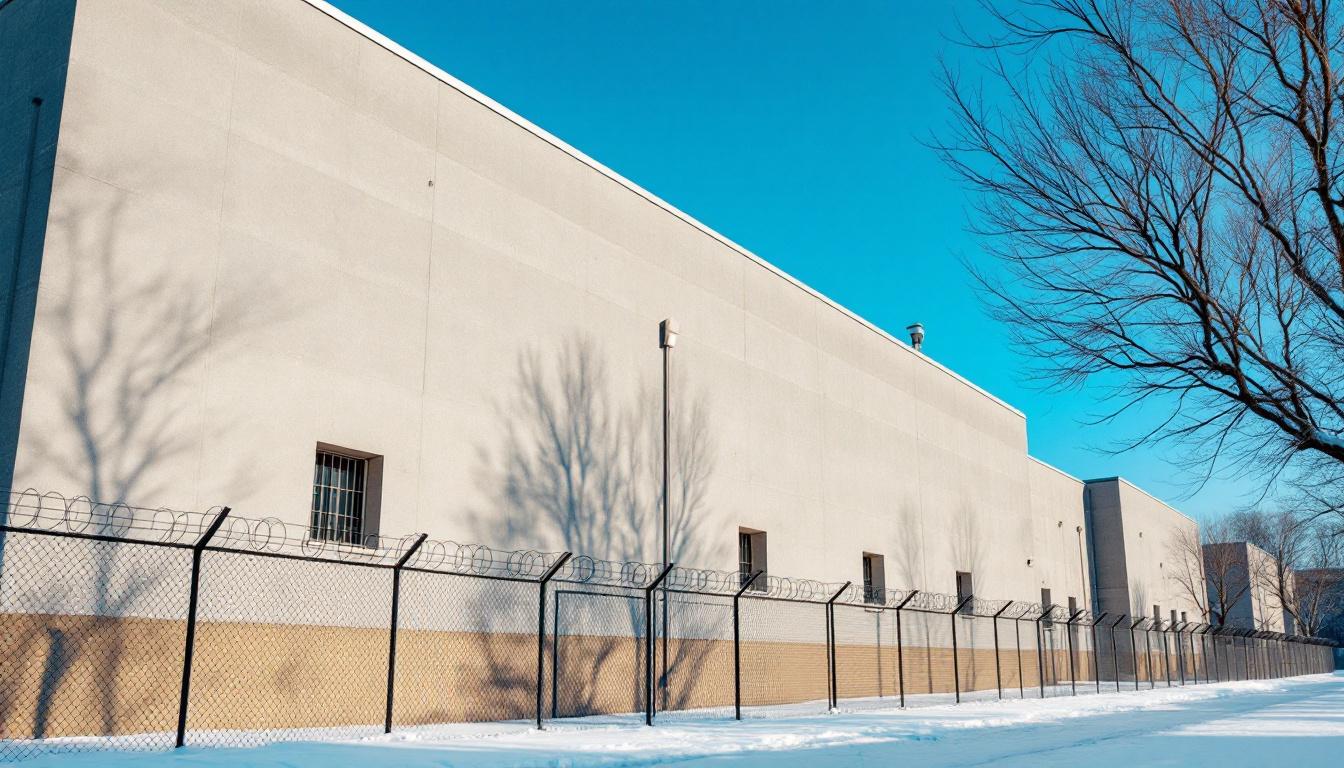
Quick Navigation
How to contact an inmate at Plaquemines Parish Sheriff's Office Detention Center
This comprehensive guide will walk you through how to connect with an inmate at Plaquemines Parish Sheriff's Office Detention Center. Follow the steps below to find an inmate and send letters and photos:
- Search for the inmate using our search tool below
- Create your account or log in to Penmate
- Write your message (up to 6,000 characters)
- Send instantly - inmates receive printed copies daily
Find an Inmate
Search for an inmate to start communicating today
Tip: You can search by first name, last name, or inmate ID number
To contact a person at Plaquemines Parish Sheriff's Office Detention Center start by searching for the person on the official facility website. Perform a search by following these steps:
- Step 1: Enter their first name and last name into the search form and click "Search"
- Step 2: Locate their inmate record
- Step 3: Write down their Inmate ID and any housing information provided
Important! Be sure to enter the person's full name. Nicknames should not be used.
How to Send Messages to Inmates

You can use your phone or computer to send emails, letters, and photos to an inmate. Messages are sent electronically to inmate tablets or kiosks at the facility. If you would like to send a message, start by searching for an inmate at Plaquemines Parish Sheriff's Office Detention Center.
Sending Photos and Postcards

A great way to send love and support to a loved one at Plaquemines Parish Sheriff's Office Detention Center is to send photos and postcards. It only takes a few minutes to send photos from your phone and it makes a huge difference. You can also mail postcards with words of support and inspiration, or design your own postcard for special moments like birthdays and holidays.
Important! Be sure not to send any explicit photos or they may not be approved by the facility. You can also use a photo printing app like Penmate to make sure your photos are printed at the correct size (4x6 or 3x5) and are mailed according to the rules and regulations of Plaquemines Parish Sheriff's Office Detention Center.
Frequently asked questions about Plaquemines Parish Sheriff's Office Detention Center
-
How long does it take to deliver a message?
If you're sending an email message your letter is usually delivered within 24-48 hours. For messages sent via mail you should expect delivery within 3-7 days. All messages will need be approved by Plaquemines Parish Sheriff's Office Detention Center.
-
How much does it cost to send a message to Plaquemines Parish Sheriff's Office Detention Center?
You can send a message free using your phone or mail a message via USPS for the price of a $0.60 stamp and envelope. You can also purchase credits or e-stamps from services starting at $1.99.
-
What services can I use to contact an inmate at Plaquemines Parish Sheriff's Office Detention Center?
Penmate
You can use Penmate to send letters and photos to an inmate from your phone. It's an easy way to stay in touch during your loved one's incarceration. Use the inmate locator to find an inmate's location and contact information, then you can send messages within a few minutes.
Securus messaging
Securus may be another option for communicating with an inmate at Plaquemines Parish Sheriff's Office Detention Center. You can create a friends and family account and purchase credits to send messages. All messages will be reviewed and must be approved by the facility.
JPay
Some county jails and state prisons may support sending messages with JPay. You must register an account with the system, find your loved one, and purchase stamps to send messages. For some locations you can also attach photos.
Smart Jail Mail
You may also check if Smart Jail Mail is available at Plaquemines Parish Sheriff's Office Detention Center. Smart Jail Mail is operated by Smart Communications and has contracted with some state and county jails. After purchasing credits, your messages and photos are sent to the facility, printed out, and then handed out to your loved one.
-
What is the mailing address of Plaquemines Parish Sheriff's Office Detention Center?
Mailing address:
Plaquemines Parish Sheriff's Office Detention Center
16801 Hwy 15
Davant, LA 70046
Phone: (504) 934-7600 -
What are the visiting hours at Plaquemines Parish Sheriff's Office Detention Center?
Visiting hours at Plaquemines Parish Sheriff's Office Detention Center vary by housing unit and security level. Generally, visits are scheduled on weekends and holidays, with some facilities offering weekday visits. Contact the facility directly at (504) 934-7600 or check their website for the current visiting schedule. Visits typically last 30-60 minutes and must be scheduled in advance.
-
What items are prohibited when sending mail to Plaquemines Parish Sheriff's Office Detention Center?
Prohibited items typically include: cash, personal checks, stamps, stickers, glitter, glue, tape, staples, paperclips, polaroid photos, musical or blank greeting cards, hardcover books, magazines with staples, and any items containing metal or electronics. Only send letters on plain white paper with blue or black ink. Photos must be printed on regular photo paper (no Polaroids). Always check with Plaquemines Parish Sheriff's Office Detention Center for their specific mail policies.
-
How do I send money to an inmate at Plaquemines Parish Sheriff's Office Detention Center?
You can send money to an inmate at Plaquemines Parish Sheriff's Office Detention Center through several methods: 1) Online using JPay, Access Corrections, or the facility's approved vendor, 2) Money orders mailed directly to the facility with the inmate's name and ID number, 3) Kiosks located in the facility lobby, or 4) Over the phone using a credit or debit card. Fees vary by method, typically ranging from $2.95 to $11.95 per transaction.
-
Can I schedule a video visit with an inmate at Plaquemines Parish Sheriff's Office Detention Center?
Many facilities now offer video visitation as an alternative to in-person visits. At Plaquemines Parish Sheriff's Office Detention Center, video visits may be available through services like Penmate, Securus Video Connect, GTL, or ICSolutions. Video visits typically cost $10-20 for 20-30 minutes and must be scheduled in advance. You'll need a computer or smartphone with a camera and reliable internet connection. Contact the facility for their specific video visitation policies and approved vendors.
-
What identification do I need to visit an inmate at Plaquemines Parish Sheriff's Office Detention Center?
All visitors must present valid government-issued photo identification such as a driver's license, state ID, passport, or military ID. Minors must be accompanied by a parent or legal guardian who can provide the minor's birth certificate. Some facilities require visitors to be on the inmate's approved visitation list, which may require a background check. Contact Plaquemines Parish Sheriff's Office Detention Center for specific ID requirements and visitor approval procedures.
-
How can I find out an inmate's release date?
To find an inmate's release date at Plaquemines Parish Sheriff's Office Detention Center, you can: 1) Use the online inmate search tool if available, 2) Call the facility's records department, 3) Contact the inmate's case manager or counselor, or 4) Have the inmate provide this information during a call or visit. For privacy reasons, some facilities only release this information to immediate family members.
Facility Overview
Contact Information
Plaquemines Parish Sheriff's Office Detention Center16801 Hwy 15
Davant, LA 70046
Phone: (504) 934-7600
Official Website

About Plaquemines Parish Sheriff's Office Detention Center
Detention centers throughout Louisiana’s coastal parishes serve as critical components in the state’s correctional infrastructure, with facilities like Plaquemins Parish Detention in Pointe a La Hache addressing the comprehensive challenges of maintaining community safety while supporting pathways toward successful reintegration. Located in this small unincorporated community along the Mississippi River’s west bank, the facility operates within a region where geographic isolation and close-knit community bonds create both challenges and opportunities for effective correctional outcomes. The detention center typically serves individuals awaiting trial, those serving shorter sentences, and residents participating in various community-based programs designed to maintain family connections and prepare for eventual return to society.
Within Louisiana’s broader correctional network, Plaquemins Parish Detention generally functions as both a local holding facility and a stepping stone toward rehabilitation services that may include educational programming, substance abuse counseling, and work-release opportunities. The facility’s position in this rural parish often allows for more personalized approaches to case management, where staff can develop familiarity with residents’ specific circumstances and community ties. Programs typically focus on addressing underlying issues that contribute to criminal behavior while maintaining the family relationships and community connections that research suggests are vital to successful reintegration outcomes.
The detention center’s role extends beyond traditional incarceration to encompass community safety and offender accountability within Plaquemines Parish’s comprehensive geographic and social landscape. Services may include coordination with local courts, probation departments, and social service agencies to ensure continuity of care and support as individuals transition between different levels of supervision. This comprehensive approach often involves collaboration with community organizations and faith-based groups that can provide ongoing support networks, recognizing that lasting behavioral change typically requires sustained community engagement rather than isolation from the social structures that will ultimately support successful reentry.
Programs & Services
Comprehensive support reaches the population through carefully designed programs that address multiple aspects of personal development and rehabilitation. The facility typically emphasizes a holistic approach to service delivery, recognizing that successful reintegration requires addressing educational gaps, developing practical skills, and providing emotional and spiritual guidance. These programs often focus on building community connections and strengthening family relationships while participants prepare for their eventual return to society.
Educational programs may supply basic literacy instruction, GED preparation, and computer skills training to help participants overcome academic barriers. Furthermore, vocational training opportunities typically include practical skill development in areas such as construction trades, food service, and maintenance work. These programs often emphasize hands-on learning that can translate directly into employment opportunities upon release, helping participants build confidence and marketable abilities.
Support services play a crucial role in addressing the underlying issues that may have contributed to incarceration. Faith-based services typically provide spiritual guidance and community connection for those who seek it. Furthermore, trauma-informed care programs often help participants process difficult experiences and develop healthy coping mechanisms. Intramural sports programs may supply physical activity and team-building opportunities that promote wellness and positive social interaction. These therapeutic and recreational programs typically work together to create a supportive environment that encourages personal growth and prepares the population for successful community reintegration.
Daily Life & Visitation
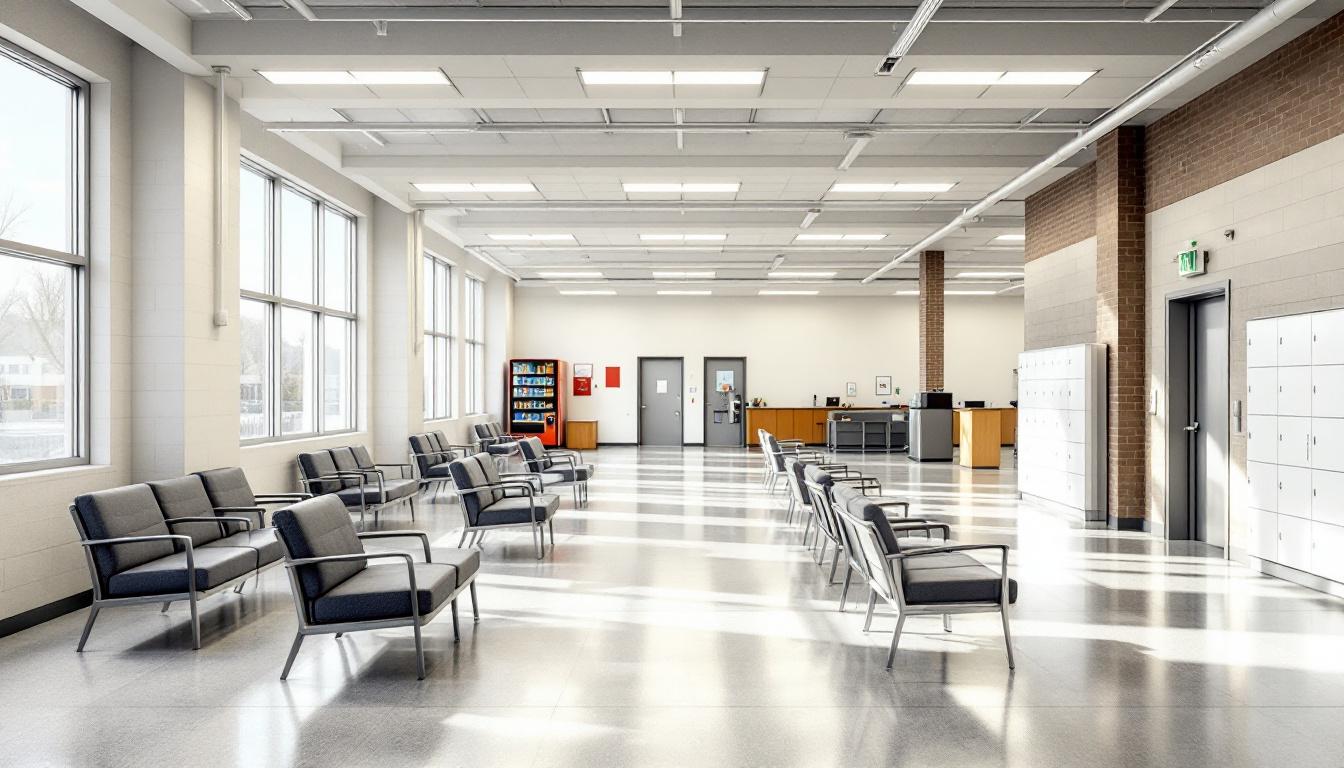
Systematic scheduling and clear organizational protocols shape every aspect of the experience for the population at Plaquemines Parish Detention Center. The facility currently operates on a structured daily routine that continues to emphasize accountability and orderly movement throughout housing units. Wake-up calls typically occur in the early morning hours, followed by cell inspections and headcounts that establish the framework for each day’s activities.
Living accommodations generally consist of dormitory-style housing units or individual cells, depending on classification levels and available space. The population typically receives three meals daily in designated dining areas, with specific time slots assigned to different housing sections to maintain order and security. Furthermore, personal property allowances may include basic hygiene items, limited clothing, and approved reading materials, while commissary services supply additional items for those with available funds.
Although movement remains controlled throughout the facility, recreational opportunities often include outdoor exercise periods, television viewing in common areas, and access to library materials. Work assignments typically supply structure and may involve kitchen duties, facility maintenance, or laundry services under staff supervision. Visitation policies generally allow scheduled contact with approved family members and friends, while telephone access provides additional communication options during designated hours. Programming schedules continue to offer educational classes, religious services, and counseling sessions that help maintain daily structure for the population.
Ready to Connect?
Start communicating with your loved one today
Search for an Inmate
